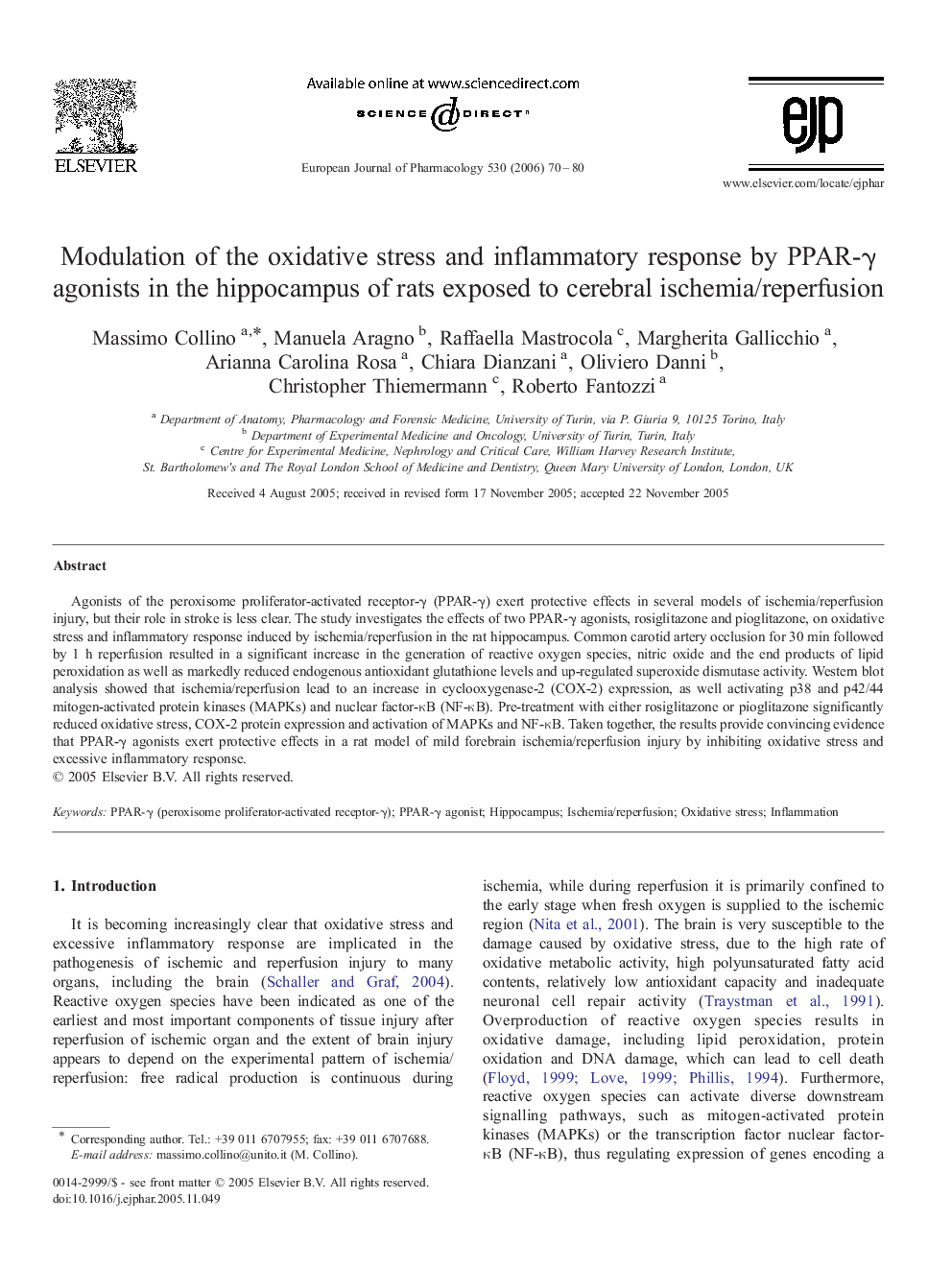| Article ID | Journal | Published Year | Pages | File Type |
|---|---|---|---|---|
| 2537544 | European Journal of Pharmacology | 2006 | 11 Pages |
Agonists of the peroxisome proliferator-activated receptor-γ (PPAR-γ) exert protective effects in several models of ischemia/reperfusion injury, but their role in stroke is less clear. The study investigates the effects of two PPAR-γ agonists, rosiglitazone and pioglitazone, on oxidative stress and inflammatory response induced by ischemia/reperfusion in the rat hippocampus. Common carotid artery occlusion for 30 min followed by 1 h reperfusion resulted in a significant increase in the generation of reactive oxygen species, nitric oxide and the end products of lipid peroxidation as well as markedly reduced endogenous antioxidant glutathione levels and up-regulated superoxide dismutase activity. Western blot analysis showed that ischemia/reperfusion lead to an increase in cyclooxygenase-2 (COX-2) expression, as well activating p38 and p42/44 mitogen-activated protein kinases (MAPKs) and nuclear factor-κB (NF-κB). Pre-treatment with either rosiglitazone or pioglitazone significantly reduced oxidative stress, COX-2 protein expression and activation of MAPKs and NF-κB. Taken together, the results provide convincing evidence that PPAR-γ agonists exert protective effects in a rat model of mild forebrain ischemia/reperfusion injury by inhibiting oxidative stress and excessive inflammatory response.
